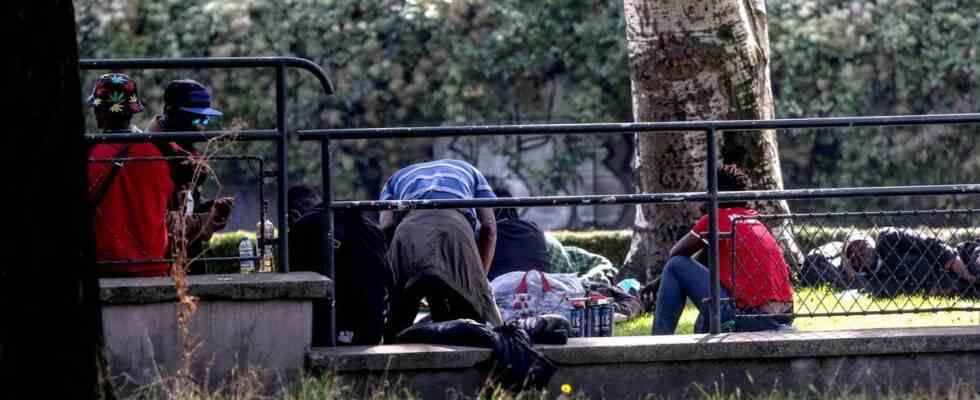Supporting crack users, including housing and social support, massively reduces their crack use. This is the conclusion of a study disseminated by the Regional Health Agency (ARS) of Ile-de-France and carried out by researchers from the Hospices Civils de Lyon and the University of Lyon-1 Claude Bernard on people frequenting the consumption scenes of north-eastern Paris.
This survey focused on the Assore system, supported by the Aurore association, which is a program of accommodation in hotel rooms associated with social support. 536 people benefit from it today, and the scientific team questioned 20% of the beneficiaries. The results are clear: 87% of consumers surveyed have seen their crack consumption decrease since joining the scheme and 19% have even completely stopped using crack.
“Stopping the consumption of any addictive substance remains very rare, however. Consumers are instead moving from compulsive consumption, with high risks, to more controlled consumption, ”warns the ARS in a press release.
A less expensive program than the usual treatment
This process, which is sometimes called housing-first in English, (in French “Un chez-soi d’abord”) was launched in the United States in the 1960s, with the idea that the first step in any reintegration is to have a roof. An approach that is not necessarily more costly than other devices, since according to a medico-economic model over a ten-year horizon cited in the report, “the housing-first is less expensive than the usual treatment”.
The beds in the Assore program are spread over 61 hotels. The Aurore association and the Samu social de Paris reserve the rooms and specialized educators, nurses and psychologists regularly visit the users in the hotels. “The objective, starting from sheltering, is to reaccustom users to living indoors and in a community, so as to stabilize them in housing, to monitor their situation and to get them to commit in the care pathways and in the administrative procedures”, explains the press release issued by the Regional Health Agency.
A positive balance sheet despite shortcomings
The ARS stresses, however, that the system suffers, according to the assessment of the scientific team, from a lack of staff and a “significant lack of accommodation solutions downstream of Assore” which can lead to users who have made progress “a certain discouragement”. Psychiatric care also appears to be insufficient, due to “a structural weakness of the offer” and “a persistent compartmentalization with addictology”.
But the results remain generally positive according to the report that 20 minutes was able to consult: “All of the actors questioned thus consider the accommodation and support offered by Assore as a necessary condition (although not sufficient) for effective care for precarious crack users. »

